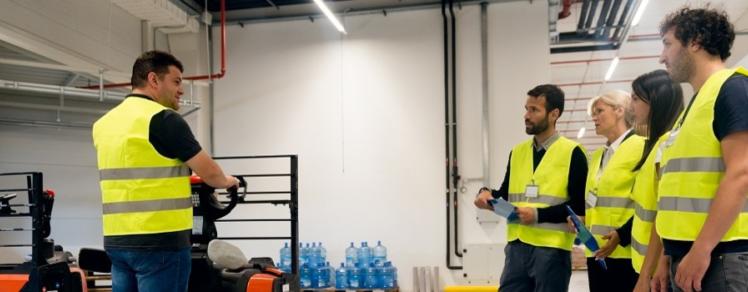
Taking on new staff is an exciting time for any business. It’s an opportunity to grow a business, pass on knowledge and potentially work towards exciting new goals.
But you need to make sure your new staff know what they are doing, and, in many instances, this will involve training them to understand their role and how your business operates. So how should you go about training your new staff?
What do they need to know?
You need to work out what you need staff to learn in order to do their job effectively. Part of this will come down to their job description but there are specific areas of your business that will be standardised including:
- Health and safety considerations for your workplace
- Customer service issues – such as the sale of age-restricted goods
- Company policies
- Using equipment
- Key things to be offered to customers – loyalty schemes, warranties, etc.
These are the areas that all staff should understand. Most likely, these basic areas will be covered in your staff induction. Beyond this, any role-specific skills can be taught to staff as and when they are required. This might include the use of specific equipment, or perhaps covering areas that relate more to management than other staff such as handling payroll or opening and closing a store.
Who carries out the training?
This is an important distinction to make. Is the training carried out in a group induction? Or is there a degree of shadowing current members of staff and learning on the job?
You need to decide, as a business, who is responsible for training your staff. Group training sessions are great for topics like health and safety or general business issues like dealing with customers.
For example, a step-by-step procedure for processing delivery of stock. This should be the same for every staff member to ensure accuracy and efficiency.
Following set processes for tasks that are integral to a business is crucial - it helps to prevent mistakes and also means there’s some degree of accountability within your team.
Having processes in place also means that they can be adapted to suit changes in your industry and way of working. For example, if a new piece of equipment is introduced, can this be added to an existing process with the training amended to incorporate this or does a whole new training program need to be created?
A peer mentoring set-up works well to help new staff members fit into an existing team quickly, and helps them to learn while they work.
In certain roles, such as shop floor staff, this is likely to be the best way to learn as they are shown the role and how to complete various tasks as and when they occur, such as merchandising or how to process a refund.
Tracking progress
One of the key things to keep in mind with training is to implement a way to track progress. It’s all well and good having training, but you need to ensure that your staff are actually learning something in order for it to be worthwhile.
As part of an employee probation period you should be monitoring their progress, identifying areas of strength and weakness and reviewing these with the staff member. If needs be, you can revisit training and provide extra support should a staff member require it.
Reviewing training
Every few months, either before peak trading periods or as an annual refresher, you should look to review training.
This could be revisiting health and safety protocol to ensure staff are always up to date on what to do in an emergency, or looking over customer service points in the run-up to a busy period like Christmas.
Going over training allows you to keep the most integral elements of a staff member’s role fresh in their mind.
Whenever something changes in your business, especially if this changes a training process as we’ve previously mentioned, you should review training.

